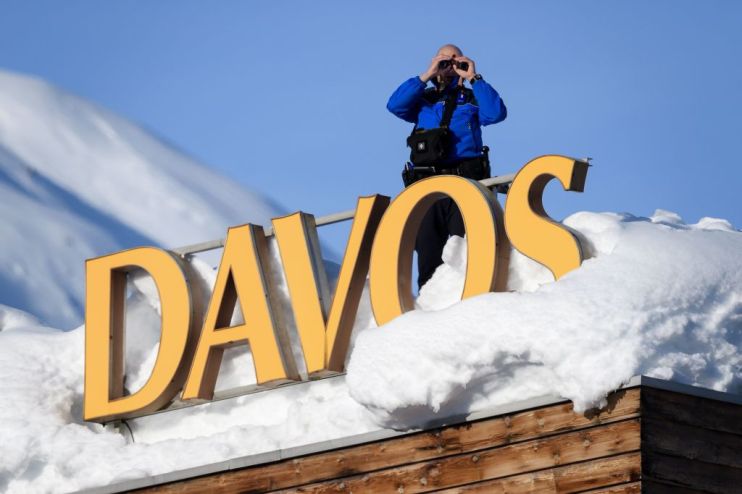Why Davos matters in the millennial world

Davos. Even the word conjures up images of Alpine glamour, exclusivity, high society and power. This week we learned that Boris Johnson has banned his ministers from attending the 2020 World Economic Forum in the Swiss town, Downing Street stressing that the new government is focusing on “delivering for the people, not champagne with billionaires”. The messaging is so obvious as to be upsettingly crude, but it fits with the repositioning which the Conservative Party has undergone to break into Labour’s Northern and working-class heartlands. What it boils down to is this: ‘ignore the black tie and beluga, it has nothing to do with you. Nothing to do with us.’ Except I don’t believe that’s true.
The problem is pretty obvious: mention Davos, and soon you’re talking about the Bilderberg Meeting; keep going too much longer and the Rothschilds and the Illuminati get thrown into the mix. It’s potentially toxic, hugely damaging, and vastly misleading.
By confining his ministers to barracks, Boris is striking a tone that will secure favourable headlines – but it’s a long term loss for a quick win. More than ever he needs to signal he’s planning for the long-term. In three or four years, when partners and competitors benefit from the deals struck at Davos, this will look like neglect.
If you’re serious about representing her majesty’s government on the world stage then attending Davos is pretty much line one of your job description. As a reputation adviser I know showing humility to the domestically is one thing, missing the best window you have to interact internationally is another. It is possible to be humble on one stage without appearing churlish on another. In fact, in modern politics, it’s essential.
Davos is a conference. It’s a way for people with common interests to come together and discuss policies and opportunities in both formal and informal settings. From Davos down to a meeting of regional sales managers in Loughborough, these gatherings vary in degree but not in kind. The canapés may be better at Davos, and you’ll get champagne instead of cava, but you’re there for the same reason.
It’s an opportunity missed. Ministers will have been carefully briefed to exploit “brush-bys”—micro-meetings in corridors and at receptions, at which seeds can be planted and ideas trailed—but if ministers aren’t physically there, then they’ll have to rely on more formal bilateral meetings and calls, which are far more time-consuming and more difficult to arrange. To give away these opportunities at a time when we are promoting the “Global Britain” brand and we need our friends close to us is hugely negligent.
Nor is Davos irrelevant to the lives of so-called ‘ordinary’ people. This is the 50th anniversary of the WEF, and the subjects nominated for discussion are: climate change; sustainable and inclusive business; technology’s place in society; and demographic trends. These aren’t esoteric ideas which affect only The One Per Cent. They’re challenges which face all of us, everywhere, now. Increasing deployment of AI in manufacturing? Your job could be at risk. Ageing population? Healthcare costs will soar. Rising sea levels? Tell someone in the Maldives or Bangladesh that’s not something they need to bother themselves with.
The WEF actually tackles head-on the fundamental issues facing society. What’s more, they’re discussed by people with their hands on the levers of power. Prime ministers, finance ministers, central bankers, captains of industry, media moguls—you may feel a visceral aversion to the thought of these powerful men (and women, increasingly) enjoying luxurious surroundings and sumptuous dinners, but what they decide matters, and if it takes Margaux and mousseline to bring them together and get them talking, then I’m mature enough to accept that.
The British have a long tradition of taking pride in being outside the room. We stood aside when the Treaty of Rome was being negotiated in 1956/57 and missed out on the opportunity to shape the European Community from the very beginning. We declined to join the ERM in 1979, before conceding and grudgingly joining in 1990 before crashing out two years later. And we have walked away from the negotiating table at several points during the Brexit process. The press portrays it as decisive and strong leadership, but it’s the exact opposite. Refusing to engage leaves us weak and without influence. As Aaron Sorkin had Josiah Bartlet say in The West Wing, ‘decisions are made by those who show up’.
So I’m sorry that I won’t see UK ministers at Davos next month. It’s the mother of all networking opportunities and a genuinely global discussion forum. President Trump will be there among the thousands of delegates, and you would expect to see leaders like Emmanuel Macron, Angela Merkel, Ursula von der Leyen and Jerome Powell. It seems a shame that Mark Carney will not have a snowy swansong before he leaves the Bank of England. And, of course, the eyes and ears of the world’s press will be there. Perhaps Trump can take up the issue of fake news with the editor of the “failing” New York Times, Dean Baquet.
Boris has made a mistake here. There’s short-term publicity to be had by shunning Davos, but a weekend of good news in the tabloids isn’t worth the sacrifice of weeks of careful planning and face-to-face negotiations. I hope the Prime Minister changes his mind for 2021.